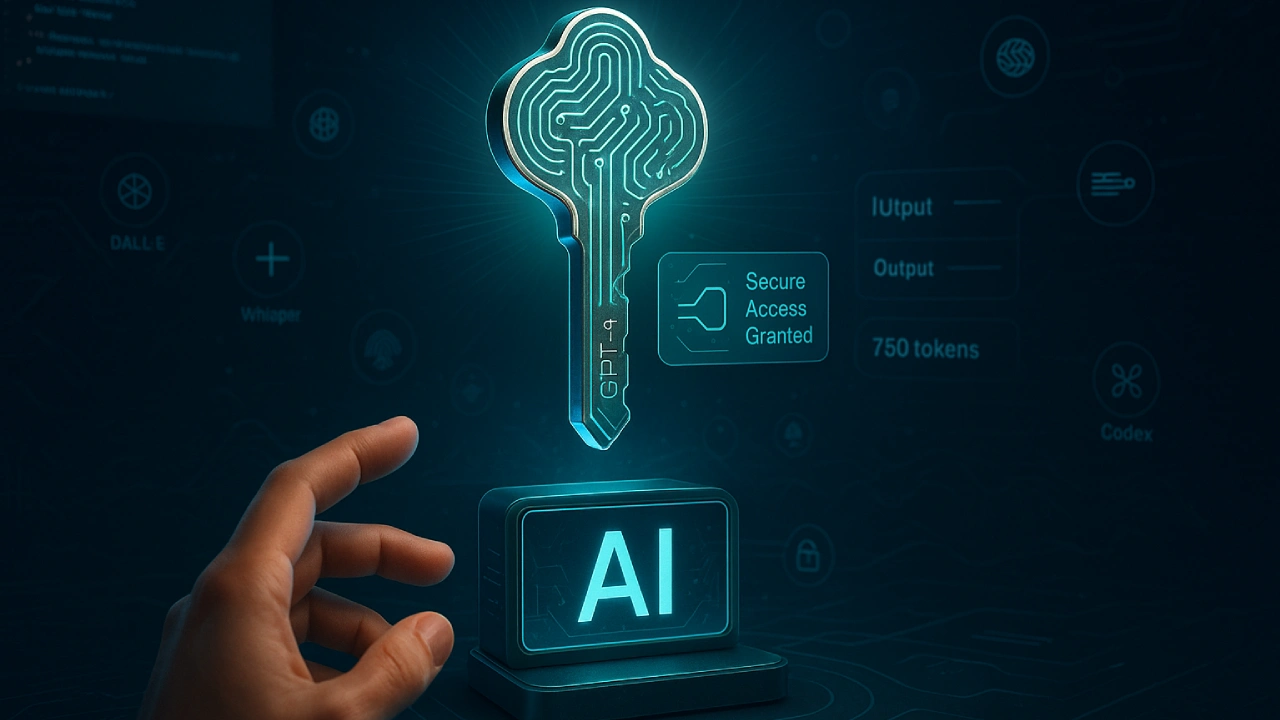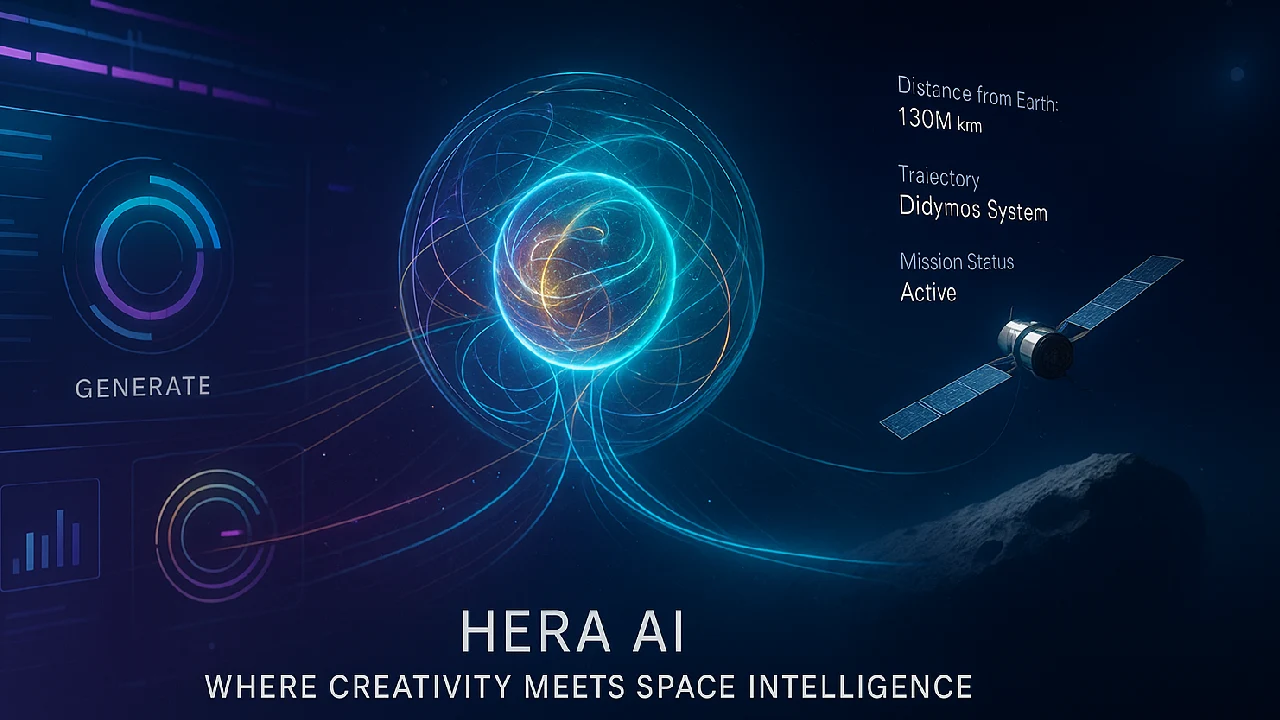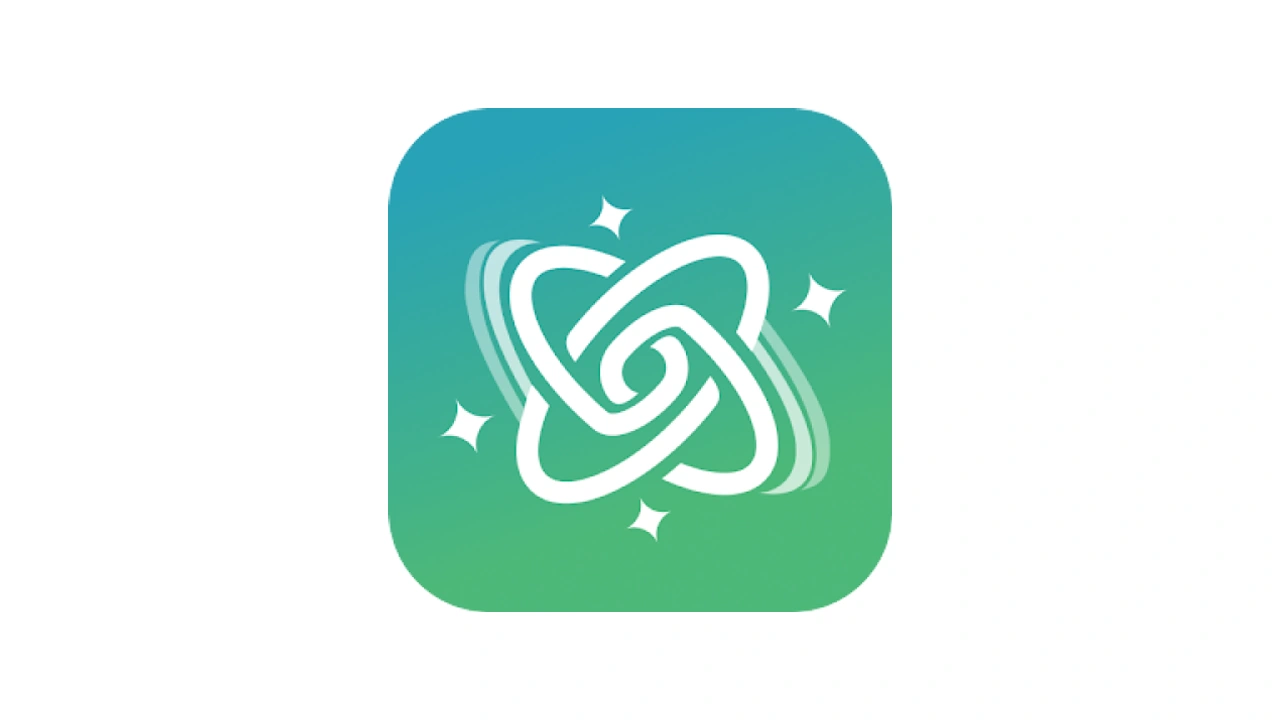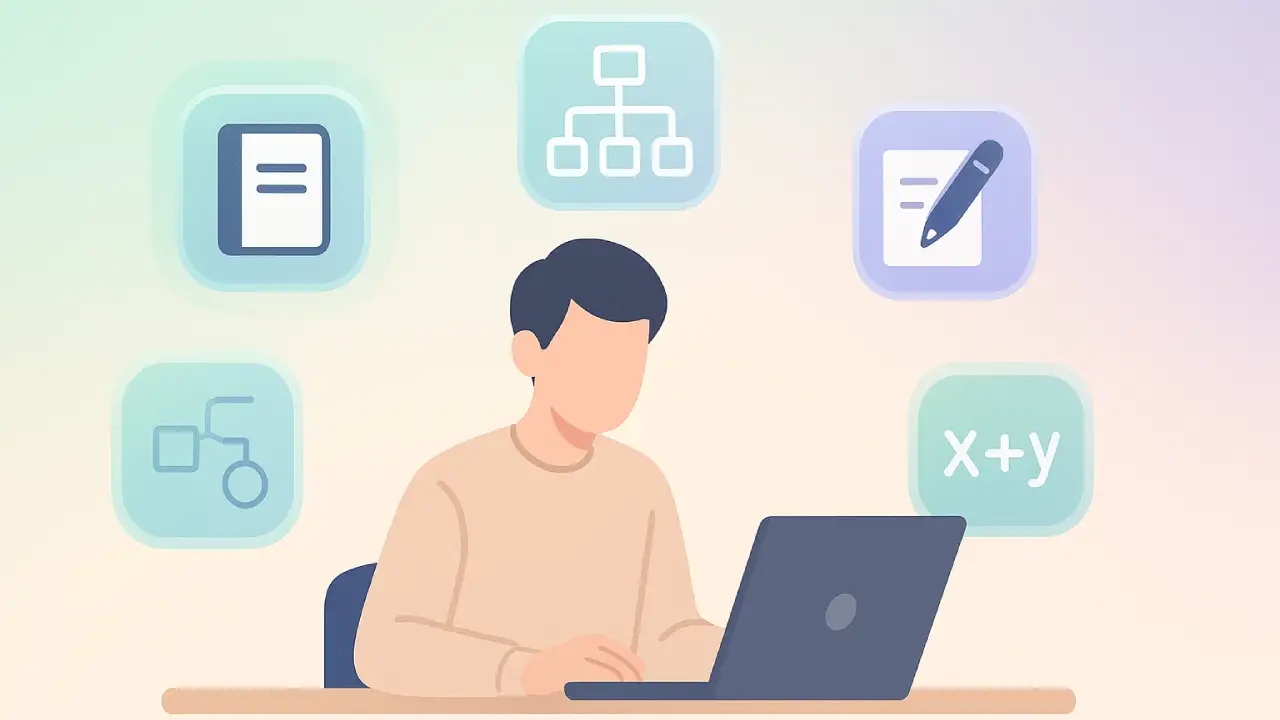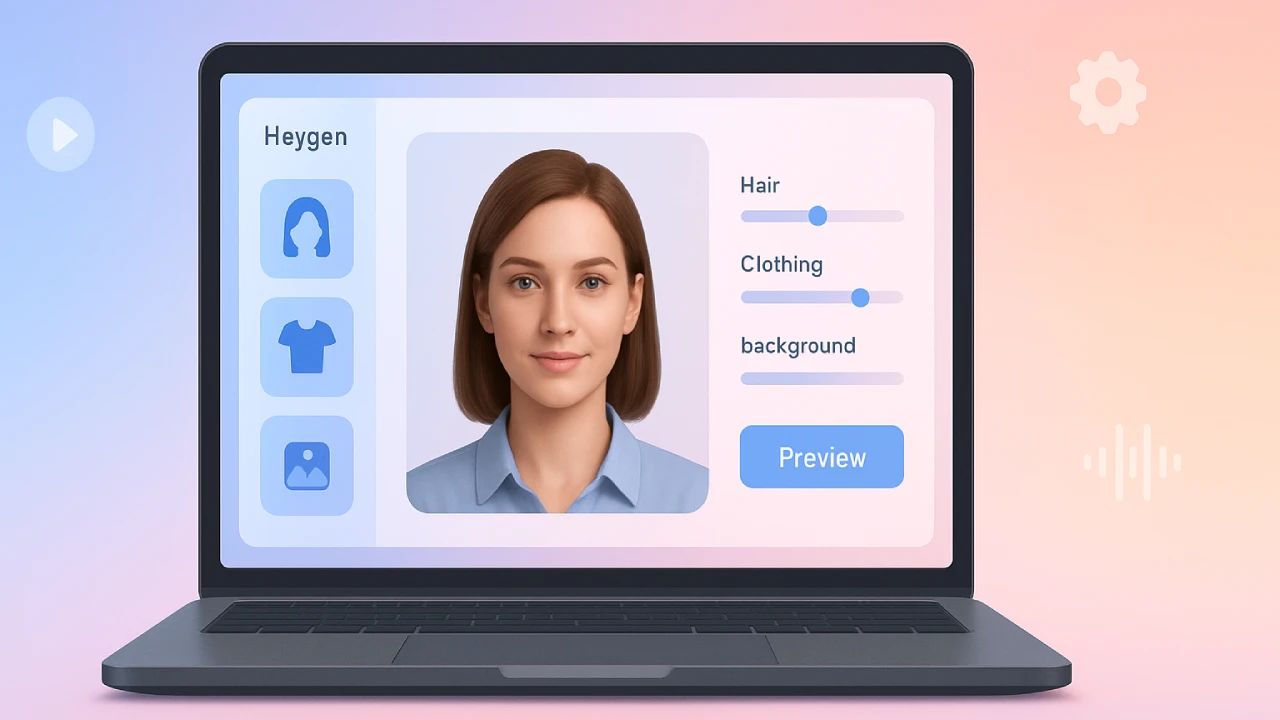If you want to use OpenAI’s tools like ChatGPT, GPT-4, or DALL·E in your website or app, you’ll need an OpenAI API Key. This key gives your app permission to connect with OpenAI’s services and use their AI models.
This blog explains what an API key is, how to get one, and how to protect it.
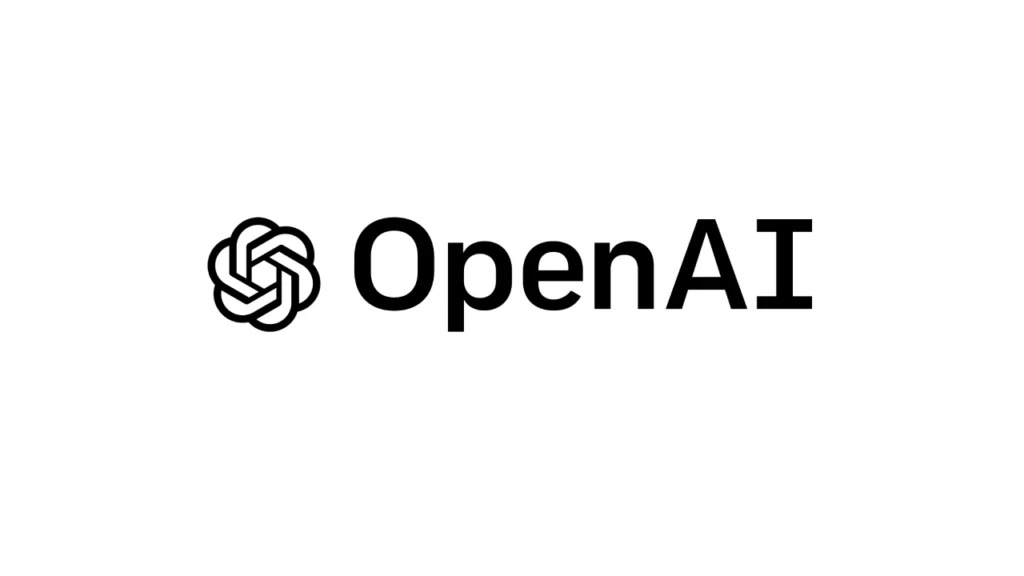
What is an OpenAI API key?
An OpenAI API key is a unique code that lets your app or program talk to OpenAI’s AI models. It works like a password. Without it, you can’t access tools like
- ChatGPT (GPT-3.5 or GPT-4)
- DALL·E (text to image)
- Whisper (audio to text)
- Codex (code generation)
- Embeddings (for search and classification)
It also helps OpenAI track how much you’re using their services and charge you accordingly.
Steps to Get an OpenAI API Key
You can create your API key in just a few steps. Here’s how:
| Step | What to Do | Notes |
|---|---|---|
| 1 | Go to OpenAI platform | Visit the official site |
| 2 | Log in or sign up | Use email, Google, or Microsoft account |
| 3 | Verify your phone number | Required for new users |
| 4 | Open the “API Keys” section | Found in the left menu |
| 5 | Click “Create new secret key” | Optionally give it a name |
| 6 | Copy your API key | Click “Create new secret key.” |
Keep Your API Key Safe
API keys are private. If someone else gets your key, they can use your account and increase your costs. Use these safety tips:
| Tip | Description |
|---|---|
| Don’t share your key | Never post it online or in public code |
| Use environment variables | Store the key in .env files, not directly in your code |
Ignore .env files in Git | Add .env to .gitignore to keep it out of your GitHub uploads |
| Use secret managers | Services like AWS Secrets Manager or HashiCorp Vault keep keys secure |
| Revoke and recreate if needed | If your key is exposed, delete it and make a new one |
| Set usage limits | In your dashboard, limit how much each key can be used |
What You Can Do with the API Key
Once you have your API key, you can build tools and apps that use OpenAI’s models. Here are some examples:
| Task | Model to Use |
|---|---|
| Chatbots | GPT-4, GPT-3.5 |
| Image generation | DALL·E |
| Audio transcription | Whisper |
| Code writing | Codex |
| Text search/classify | Embeddings |
| Summarization/translation | GPT-4, GPT-3.5 |
These models are powerful and flexible. You just need the key to access them.
Is It Free to Use?
Creating an API key is free. New users usually get some free credits to try out the tools. After that:
- You’ll need to add a payment method to continue.
- Costs depend on how many tokens you use. A token is a small chunk of text.
- GPT-4 is more expensive than GPT-3.5.
- DALL·E, Whisper, and other tools have separate prices.
- You can set usage limits to avoid large bills.
Final Tips
- Make separate keys for different projects to stay organized.
- Check your usage dashboard regularly.
- Delete unused or unsafe keys.
- Read OpenAI’s API documentation to learn how to use the key in your code.
Conclusion
Getting an OpenAI API key is the first step to using advanced AI tools in your projects. It’s easy to create, but you must keep it private and secure. With the key, you can access powerful models like GPT-4, DALL·E, and Whisper to build chatbots, generate images, write code, and more.
In today’s AI-driven landscape, the OpenAI API key has become a gateway to innovation, empowering developers, businesses, and creators to build intelligent tools with minimal effort. Whether you’re designing a smart chatbot, automating content creation, generating AI art, or transcribing speech in real-time, this single key unlocks access to some of the most advanced language, vision, and audio models available. By combining secure key management with scalable usage plans, OpenAI ensures that both individual users and enterprises can explore cutting-edge AI while maintaining control over costs, data, and access. As AI adoption grows, mastering API key handling and model integration is becoming a core skill for future-ready developers.

